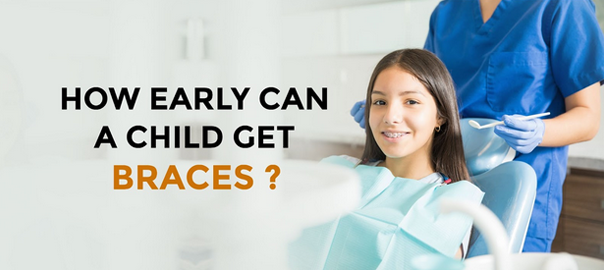
How early Can a Child Get Braces?
The orthodontic condition and dental development stage of the child determine the ideal time to start with braces. Most orthodontists recommend a first assessment of a child around seven years of age. In this stage, the child should probably already have erupted in his first permanent molars and incisors; hence, potential orthodontic problems would be detected. However, not every child would need immediate treatment. In fact, many orthodontic problems are best diagnosed and treated at the age when most of the permanent teeth have erupted.
Advantages of early treatment
Orthodontic treatment starting at an earlier age is sometimes valuable for specific dental problems. The orthodontist can take advantage of a child’s continuous growth and development by beginning the treatment at an earlier age to correct problems more efficiently. Some of the advantages of early treatment include
a) Jaw regulation: Braces can regulate the growth of a jaw to create an even better shape for aligning teeth.
b) Prevention of major problems: Early treatment can prevent and reduce more extensive treatments later through preventing or reducing the severity of orthodontic problems.
c) Esthetic upgrade: Treating dental issues early will have a positive impact on facial appearance in the child and lead to increased self-esteem and confidence.
d) Healthier oral cavity: It is difficult to clean crooked teeth that may lead to the development of tooth decay and gum infection. The treatment at an early stage will surely keep the good oral hygiene.
Key concerns for parents
Although early orthodontic intervention is pretty useful, but there are some factors for which parents should think before taking the braces for their kid:
a) Orthodontist’s advice: Consult a qualified orthodontist to make recommendations regarding early treatment or waiting for teenage years for your child’s case.
b) Oral hygiene: Teach your child to brush, floss, and have regular visits to the dentist for good oral hygiene.
c) Psychological maturity: You must know how mature your child is to face the responsibility of having braces.
d) Lifestyle changes: These are some diet and lifestyle change practices, such as the avoidance of specific types of foods and regular visits to the orthodontist for check-ups.
Some claim that proper orthodontic evaluation at an early stage helps diagnose any potential dental problems with your child, yet the right age to get braces differs. Early treatment provides a wide range of benefits, so discuss this issue with your orthodontist to find the best option. Remember all these factors before deciding on anything for the best orthodontic experience for your child.
Leave a Reply
Leave a Reply
Explore More Similar Posts
Explore More Blogs


Leave a Reply